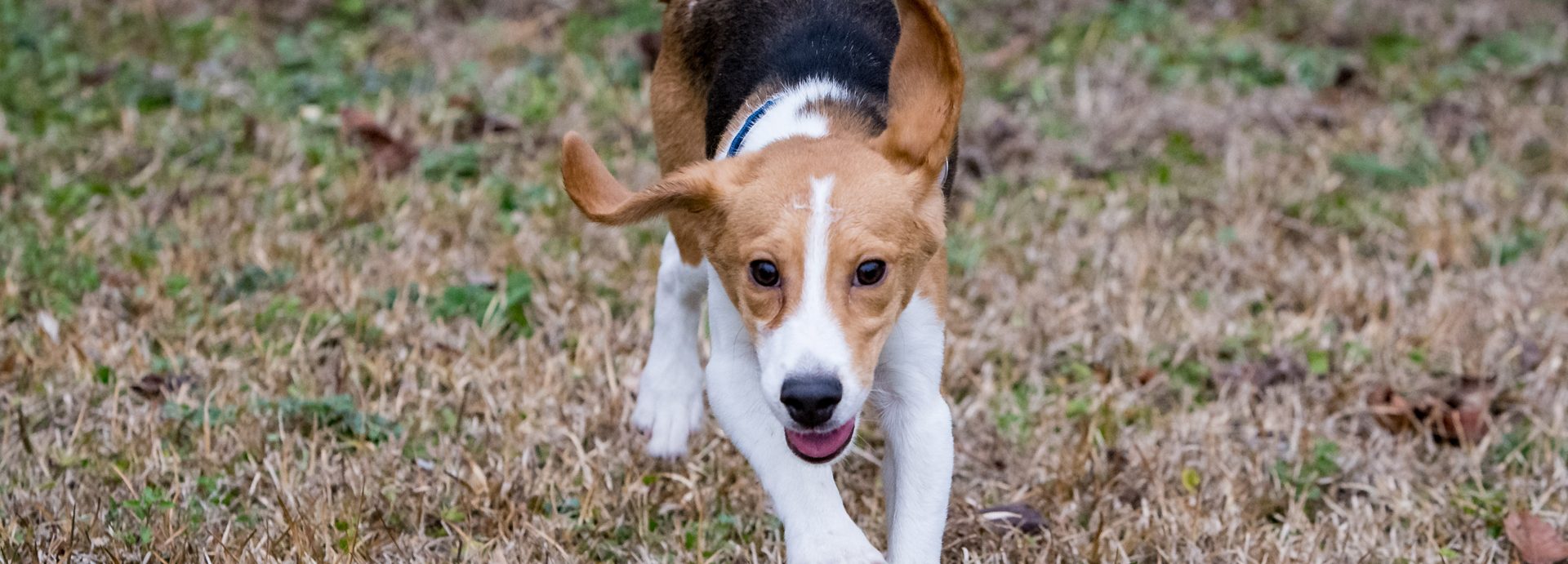A quartet of professors at the University of Missouri-Columbia purposefully blinded six beagles — and then killed them after the research they were conducting failed to heal their wounded corneas.
That’s according to a paper published in the 2016 Journal of Veterinary Opthamology, which details the ineffective treatment and the dogs’ untimely end. The pups were just nine to twelve months at the time they endured the experiment and then were killed.
Dan Kolde is a St. Louis-based attorney for the Beagle Freedom Project, which seeks to rescue and protect the dogs, who are frequently used in scientific research. Even beyond his horror at the study, he says he’s horrified that the university failed to work with his group to rehome the dogs.
“We would have found them homes,” he says. “Beagle Freedom Project would have happily taken these dogs.”
Mary Jo Banken, a spokeswoman for the university, defended the project, which sought to explore a particular type of treatment for corneal ulcers.
“Without animal research, we would not be able to answer some of the most important medical questions,” she told the RFT in an emailed statement. “Researchers at the University of Missouri are working to develop painless or non-invasive treatments for corneal injuries to the eyes of people and dogs, including search and rescue dogs and other service animals. Common injuries to the cornea can include force trauma, chronic defects and surgical procedures, and can lead to blindness. Since dogs share similar eye characteristics with people, they are ideal candidates for corneal studies, and veterinarians have provided vital information to physicians and veterinarians treating corneal injuries – which ultimately benefit other dogs, animals and humans, including many of our U.S. veterans who have sustained corneal injuries while defending our country.”
The studies, she said, were performed in accordance with the Association for Research in Vision and Ophthalmology and approved by the MU Institutional Animal Care and Use Committee. “The animals were treated humanely and every effort was made to ensure dogs were as comfortable as possible during the tests to study the effectiveness of the new drug treatment.”
Banken did not respond to a follow-up question asking for a second time why the beagles couldn’t be rehomed.
And that’s not Kolde’s only question. He wonders about the very design of the study. The professors knew the study was bound to fail, he notes. The sample size was just too small.
That’s by their own admission. As the study notes, “Prior to study initiation, a power analysis was performed and it was determined that 12 animals per group would be required to detect a clinically significant difference in healing rates.” Yet, the professors write, “a study size of 24 dogs was deemed impractical given concerns of animal resources for this pilot study.” They went ahead with six — and then got a published paper out of it.
Kolde had previously filed a lawsuit against Mizzou on behalf of the Beagle Freedom Project, seeking records relating to the university’s care of beagles. The non-profit sought basic records that Mizzou is required by law to maintain. Yet the university sought to charge it $82,222 — as much as $7 a page.
The suit is still pending.
Original Article: River Front Times
(Photo courtesy of Flickr/Tatiana Johnson)

